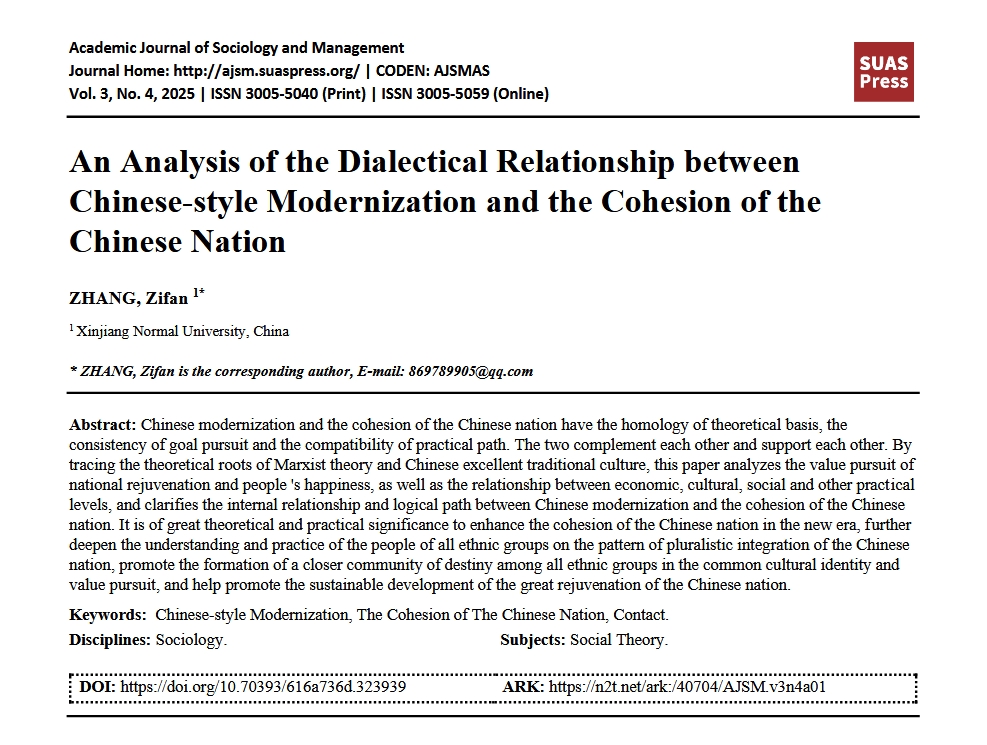An Analysis of the Dialectical Relationship between Chinese-style Modernization and the Cohesion of the Chinese Nation
DOI:
https://doi.org/10.70393/616a736d.323939ARK:
https://n2t.net/ark:/40704/AJSM.v3n4a01Disciplines:
SociologySubjects:
Social TheoryReferences:
6Keywords:
Chinese-style Modernization, The Cohesion of The Chinese Nation, ContactAbstract
Chinese modernization and the cohesion of the Chinese nation have the homology of theoretical basis, the consistency of goal pursuit and the compatibility of practical path. The two complement each other and support each other. By tracing the theoretical roots of Marxist theory and Chinese excellent traditional culture, this paper analyzes the value pursuit of national rejuvenation and people 's happiness, as well as the relationship between economic, cultural, social and other practical levels, and clarifies the internal relationship and logical path between Chinese modernization and the cohesion of the Chinese nation. It is of great theoretical and practical significance to enhance the cohesion of the Chinese nation in the new era, further deepen the understanding and practice of the people of all ethnic groups on the pattern of pluralistic integration of the Chinese nation, promote the formation of a closer community of destiny among all ethnic groups in the common cultural identity and value pursuit, and help promote the sustainable development of the great rejuvenation of the Chinese nation.
Downloads
Metrics
References
[1] Wang, K., & Chen, Y. (2025). An Evaluation and Correlation Analysis of Regional Development Under the Background of Chinese-Style Modernization. Sustainability (2071-1050), 17(2).
[2] He, Z., & Wang, C. (2024). Understanding the Unique Characteristics and Essential Requirements of Chinese Modernization. International Critical Thought, 14(1), 1-17.
[3] Wang, X., & Zhang, X. (2022). The Connotation, Ideological Origin and Logical Premise of Common Prosperity. Open Access Library Journal, 9(5), 1-11.
[4] Liao, Y., & Meng, L. (2024). Analysis of the Relationship between China's. Two Systems" and the Chinese National Community (December 12, 2024).
[5] Huang, Z., Wang, T., & Li, X. (2015). The political dynamics of educational changes in China. Policy Futures in Education, 14(1), 24-41.
[6] Gao, Z. (2015). When nationalism goes to the market: The case of Chinese patriotic songs. Journal of Macromarketing, 35(4), 473-488.

Downloads
Published
How to Cite
Issue
Section
ARK
License
Copyright (c) 2025 The author retains copyright and grants the journal the right of first publication.

This work is licensed under a Creative Commons Attribution 4.0 International License.

















